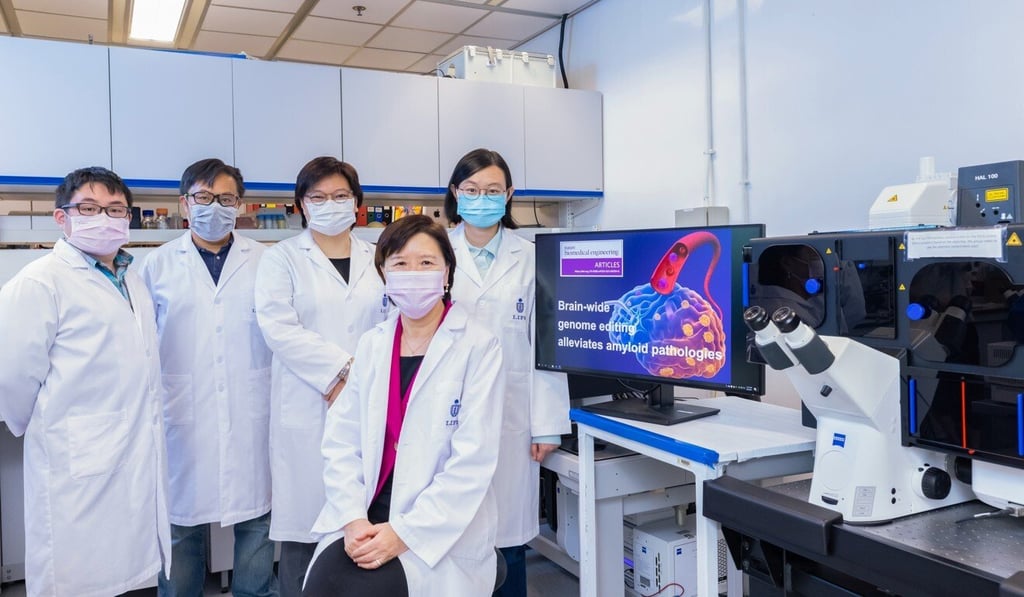‘Once-and-for-all’ treatment for familial Alzheimer’s disease? Hong Kong-led team develops new genome-editing technology
- Method centres on a genome-editing tool that targets entire brain of patient instead of just a localised area as in existing approaches
- While clinical trials are still up to a decade away, progress on animal models is seen as a milestone for treating gene mutations

An international research team led by scientists at the Hong Kong University of Science and Technology has developed genome-editing technology that could become a “once-and-for-all” treatment for people with a family history of Alzheimer’s disease.
Led by world-renowned neuroscientist Professor Nancy Ip Yuk-yu, vice-president for research and development at the university, the group created a new system that can deliver the genome-editing tool to the entire brain of a patient rather than just a localised area as in existing approaches.
The technology is centred on being able to overcome the protective blood-brain barrier, a layer of cells that selectively prevents fluids from crossing into the central nervous system.

“Our work actually makes it possible to have high enough efficiency, hence we were able to observe the phenotype [changes or effects]. The brain-wide aspect is also very important. A disease like Alzheimer’s doesn’t just affect a small region of the brain, so we need to have brain-wide genome editing to modify different brain regions,” Ip said.
The researchers also found that in gene experiments in which mice were made to exhibit characteristics of Alzheimer’s disease, such as impaired memory, the level of amyloid – a protein thought to drive neurodegeneration – remained low for six months post-treatment.